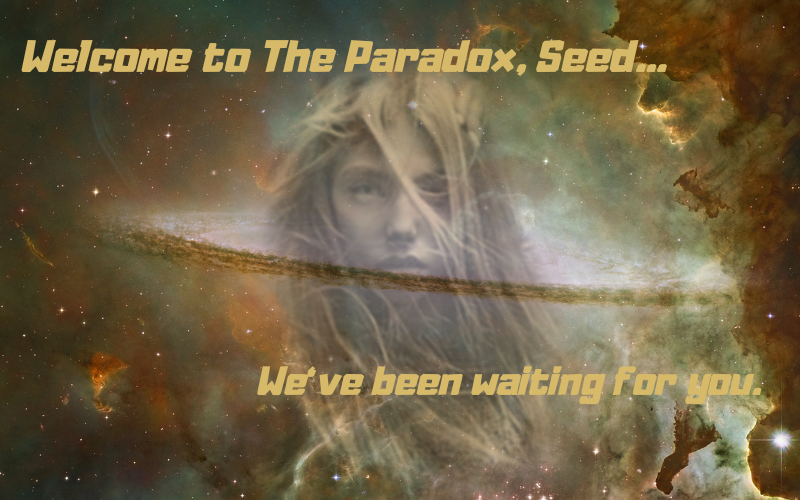Seriously...is anybody out there?

Unless you’ve been living under a rock, you’ve seen the kerfuffle over what we used to call UFOs. Until 2022 we called them unidentified aerial phenomena which term has now “evolved” into now UAPs (unidentified anomalous phenomena), to cover unexplained sightings in virtually all circumstances. Fair enough. If we bipedal humanoids walk, fly and swim why would the “aliens” we might encounter not do the same?
It’s a reasonable assumption that an “alien” race capable of traversing the void of what we call “space” to visit Earth would be able to do all the things we can do and (possibly) things we haven’t even conceived of, yet. Perhaps less reasonable is the notion that aliens would bother with the benighted, bigoted organism we call homo sapiens.
But if you’re anything like me, you’re hopeful if not optimistic. Hopeful that despite the obstacles, contact is not only still possible, but potentially desirable. And yes, I recognize the desirability of “alien” contact is an open question.
Most readers inclined to bother with this post have already heard of Fermi’s Paradox, reputedly raised in the 1930s in casual discussion. Reductively summarized, Fermi’s Paradox is the absence of undeniable evidence of intelligent “alien” life and what we know about the apparent likelihood of it. That apparent likelihood has gotten a boost, of late, from data we’re learning from the Kepler telescope. Based on images and the data analysis derived from it, it’s possible that about 20% of “sun-like” stars have planets in what we would call habitable orbits.
Back to the Paradox
A charitable (and perhaps optimistic) interpretation of that data suggests that the nearest such planet, yet unidentified, might be as close as twelve light years. Which inevitably leads us back to Fermi’s Paradox. So…why hasn’t contact occurred, yet? In 1974, Michael Hart authored an article entitled, The Explanation for the Absence of Extraterrestrials on Earth, expanding and commenting on Fermi’s Paradox. Before I go a step further, I should acknowledge that Fermi was not the only or even necessarily the first to wonder about this. He’s just the one most people have heard of.
But back to Hart’s article. In the second paragraph he alluded to what he called “Fact A,” to wit:
“There are no intelligent beings from outer space on Earth now.”
Based on the accepted rules of scientific evidence, it’s hard to argue with that statement. He went on to offer several explanations for why this may be true.
- Aliens never came here because of a physical difficulty “that makes space travel infeasible,” which could be related to astronomy, biology, or engineering.
- Aliens simply chose never to visit us.
- Advanced civilizations beyond Earth arose too recently for aliens to reach us.
- Aliens have visited Earth in the past, but we have not observed them.
I’m going to propose a fifth explanation, but before I do, I feel obliged to add a huge caveat emptor. I am not an astrophysicist or astrobiologist, nor do I play either on television. But there is (at least) one other explanation for why an intelligent alien culture if it exists, remains undiscovered. Perhaps they’re already here, but for reasons of their own, choose to remain undiscovered.
"THE" Paradox
What follows is part honest (if speculative) philosophical musing, and part shameless self-promotion. First, the philosophical speculation. What if “aliens” are already here, but for reasons of their own, choose to remain undiscovered—and have the technological and social savvy to do so?
Implicit in Hart’s candidate explanations for why we haven’t encountered alien intelligence here on Earth is the assumption that, if they came, we would know. But would we? And a second, popular assumption is embedded in War of the Worlds, and more recently, Independence Day. Aliens we might encounter are likely to have malevolent intentions. Based on our own aggressive and exploitive tendencies, it’s an understandable if disturbing assumption.
The Knolans Are Here
But logically, neither is certain. What if one or both assumptions outlined above proved to be, if not absolutely false, at least a bit more nuanced? That is the underpinning premise of the continuing story in The Knolan Cycle. The series opens with Tier Zero, in which the Knolans have been here for over thirty years, and no one is aware of it. As readers would expect that’s about to change, but not in the hackneyed “take me to your leader” sense. Giving rise to the obvious accompanying questions: so why are they here ,and why all the secrecy?
And well we might ask. But consider this perspective. Our shared historical and cultural experiences have led us to view potential alien contact similarly. It’s understandable. But even if a hypothetical alien culture proved to be physically and genetically identical, their own historical experiences might alter their motives and behaviors in ways we might struggle to understand. Or alternatively, might they be inclined to behave as we would, if our situations were reversed, but fear being misunderstood? Might that make them secretive both about their presence, and their motives for being here?
The philosophical implications of an encounter with an alien culture at once radically similar and yet radically different is literally the grist of science fiction. And while nobody asked me, it is also a mind-expanding thought experiment. History and the culture emerging from it might inform alien behavior just as it does nations on the planet Homo sapiens call home. And might those variables result in behavior we’d struggle to understand? That is the underpinning theme of The Knolan Cycle. And both their presence here and their motives are as far-reaching as they are unpredictable.

This was beautiful, Admin. Thank you for your reflections.
This is a really thought-provoking post. Many thanks!
Thank you for taking the time to read and comment. Make it a great day!
I don’t recall reading anything quite like this before A very different take and I’m glad I found it.
Thanks Tanya. I’m glad you found it, too. Make it a great day.